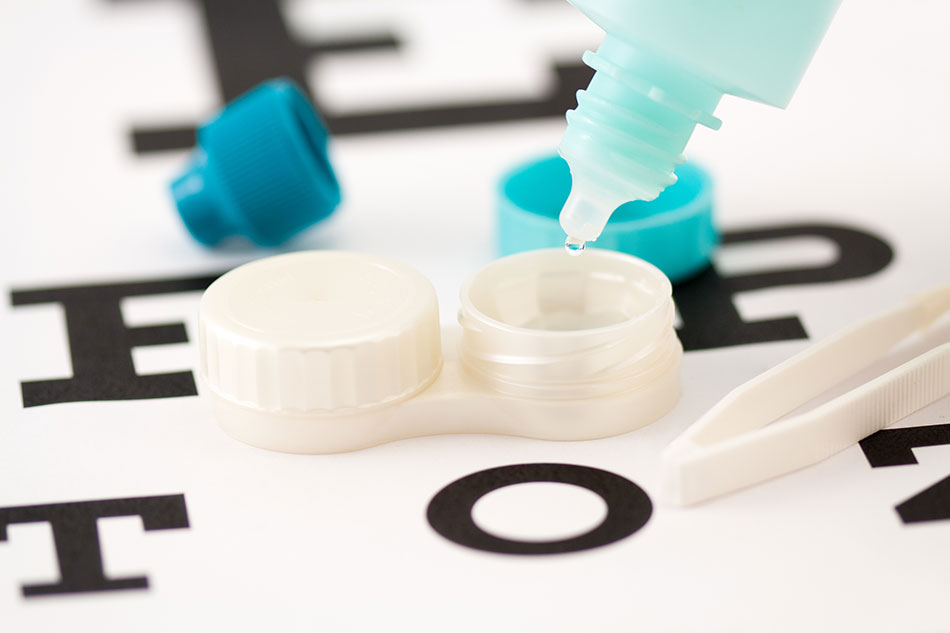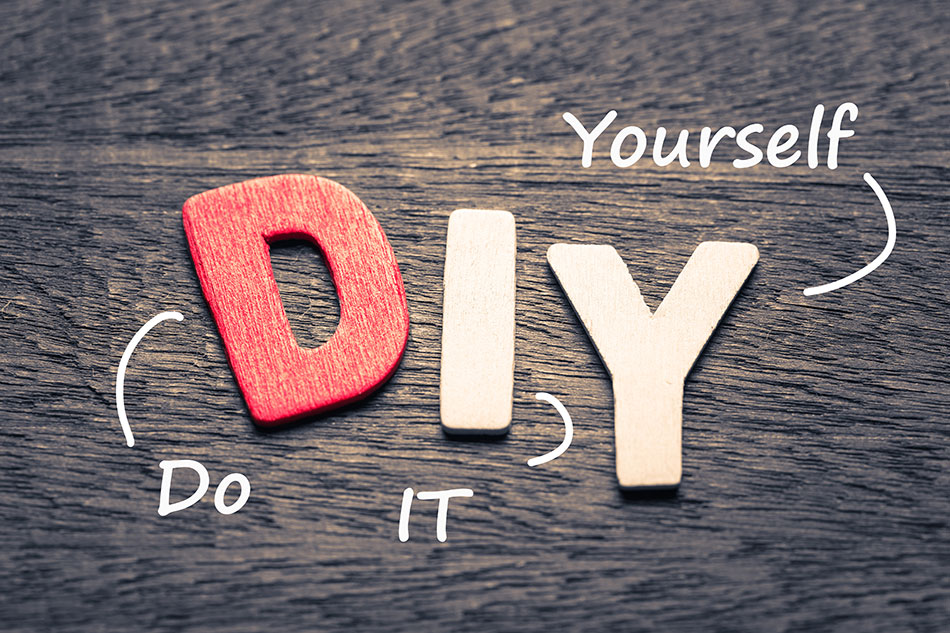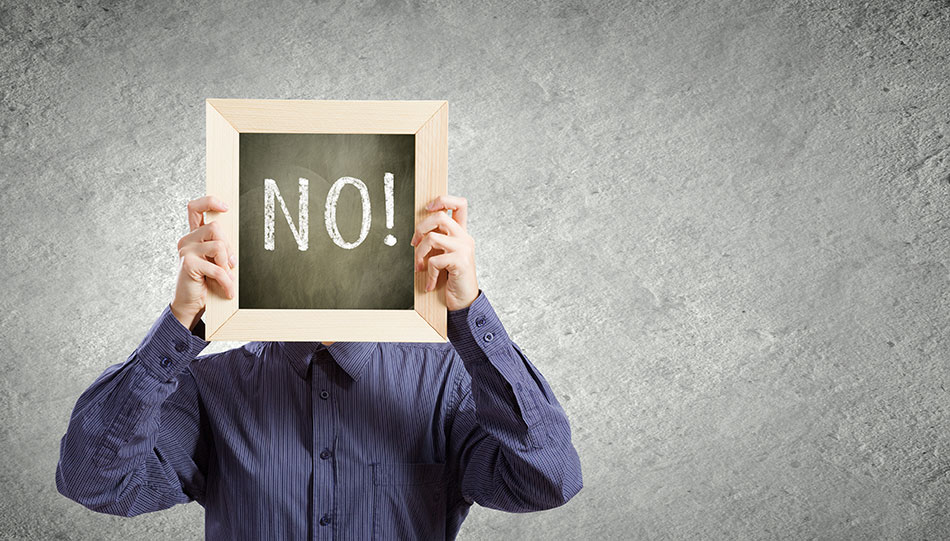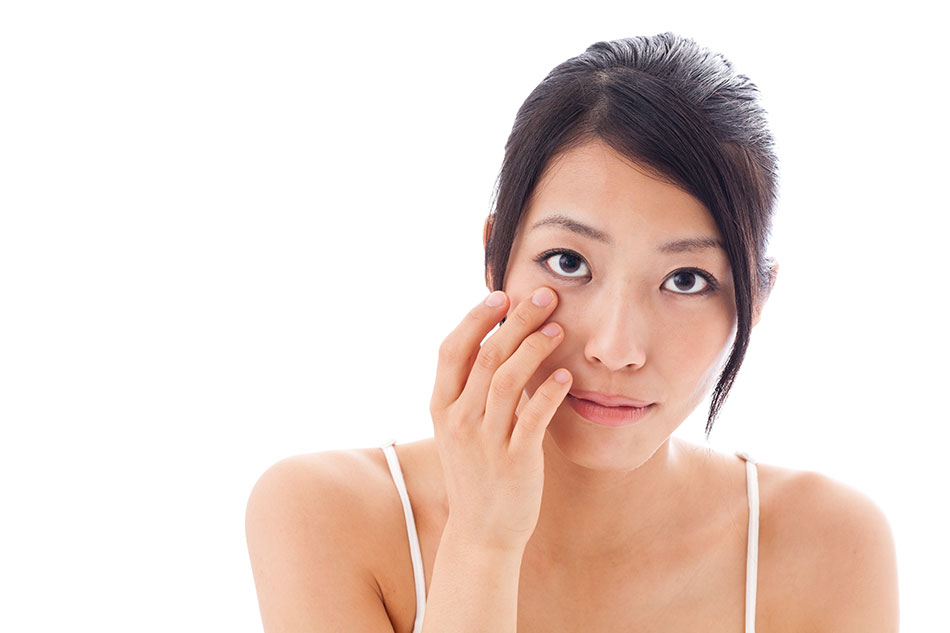Storing Contacts in Water Then Solution
Help, I'm out of Contact Solution! What Do I Do Now?

An impressive amount of people don't clean their contacts in the right way. In fact, 40-90% of people fail to do so. Sometimes, it's because they're fresh out of contact solution.
Has this happened to you too? You go to clean your contacts and suddenly realize the solution bottle is empty. Or perhaps you've left quickly for an overnight trip and forgotten to pack solution. Whatever the case is, you find yourself needing a replacement fast.
In this post, we'll explore why contact solution is important and what to do when you run out. Plus, learn why using a DIY contact lens solution could cause more harm than good.
Why Is Contact Solution Important?

You use contact solution to clean and protect your contact lenses. Proteins in your eye can build-up on your lenses. This can lead to serious infections if you don't practice proper lens care.
Contact solution is commercially manufactured with chemicals and preservatives. This not only cleans the lenses but also disinfects them and safely removes the protein build-up. Different brands and types consist of varying ingredients. But some of the main ones are boric acid, detergents and other things that keep the contacts moisturized and disinfected.
There are different types of contact solutions. For example, some are for sensitive eyes. Others are free of certain chemicals and preservatives. Using a multipurpose solution can tackle all the rinsing, cleaning and disinfecting. This eliminates the need for a saline solution.
Is Saline Solution the Same as Contact Solution?
Saline solution consists of saltwater that's pH balanced. Its purpose is to rinse off your contacts. You use it after cleaning and disinfecting and before putting your contacts in.
However, saline solution is NOT the same as contact solution. It contains no cleaning or disinfecting agents. It should not replace your daily lens solution. Soaking contacts in a saline solution overnight is dangerous because contamination may happen.
DIY Solution: Yes or No?

It's very easy to find a DIY contact solution on Google or in any corner of the Internet that has other DIY recipes. However, using those comes with very serious risks. Making a DIY solution sounds easy and even economical. But it's not recommended by eye care professionals.
For the DIY solution to work properly, all the materials used must be completely sterile. This is absolutely essential and impossible to do at home. Having a sterile contact solution means your contacts stay clean from all contaminants.
If you've left your contact solution at home and can't get any more at the last minute, the best thing to do is throw the contacts out. Using anything else puts you at risk for significant eye damage. This can include blindness.
Water Is Also a No-No

Though it's tempting, don't use tap water for your contacts. It is also not recommended by professionals for storing your contacts. Tap water contains bacteria and microorganisms. Once in your eyes, they can cause a rare disease called Acanthamoeba keratitis.
Acanthamoeba keratitis is a very serious infection of the cornea. It is extremely painful and could necessitate a corneal transplant. In the worst case scenario, blindness can occur.
Some sources may tell you that distilled water is ok for storing contacts in if you boil it first. This is also not recommended because there's no way to know for certain if you've killed all the organisms in the water. It's dangerous to store your contacts in distilled water for even one night.
Contact Solution Is the Only Solution
Contact solution is specifically designed to keep your contacts clean. Using anything other than that means putting your eyes in danger.
Find yourself in a place where you need to remove your contacts for a time but don't have any solution? There are ways to ensure you can keep them clean and free from pathogens:
- Always keep a travel-sized bottle of contact solution and saline solution while on the go. That way, you'll always have a way to rinse or clean your contacts.
- Taking a spare case along with the solution is also a great idea.
- Wearing your contacts for a prolonged period of time? Eye drops can keep your eyes moisturized and healthy.
- Remember, never use water to rinse your contacts. Not even once!
Tips for Good Contact Care

Once you're familiar with your contacts and how to care for them, establishing a routine is simple. Here are some tips to keep your contacts in tip-top shape:
- If you're thinking about switching, ask your eye doctor what type of solution works best for you.
- Check the solution bottles for expiration dates and throw out any that are out of date.
- Wash out your contact case every night and replace it at least every three months. Or consider daily disposable contacts if you can't remember to clean very well.
- Always rub your lenses gently while cleaning with a solution for optimal cleaning. Do this for about 15 seconds per contact.
- Don't overwear your contacts. This can cause problems such as irritation and infection.
- Keep the solution tip away from other surfaces. Particles can contaminate the solution, so always close the cap when you're finished.
- Dump out your solution every day and use fresh solution. Never add more to the existing liquid.
- Never mix different brands or even different types of contact solution. Each one has different ingredients that could counteract one another.
- Always follow the directions on the back of the solution bottle. This ensures you're properly cleaning and disinfecting your lenses.
Use a Good Contact Solution for Optimal Eye Health
You can properly manage your contact lenses by using the appropriate contact solution. Remember that DIY solution is never advised. Usage can lead to devastating consequences.
Have any questions about the type of contact solution you should use? Get in touch with your eye care professional to ask for suggestions.
Storing Contacts in Water Then Solution
Source: https://www.lenspure.com/articles/out-of-contact-solution-what-to-do-now
0 Response to "Storing Contacts in Water Then Solution"
Post a Comment